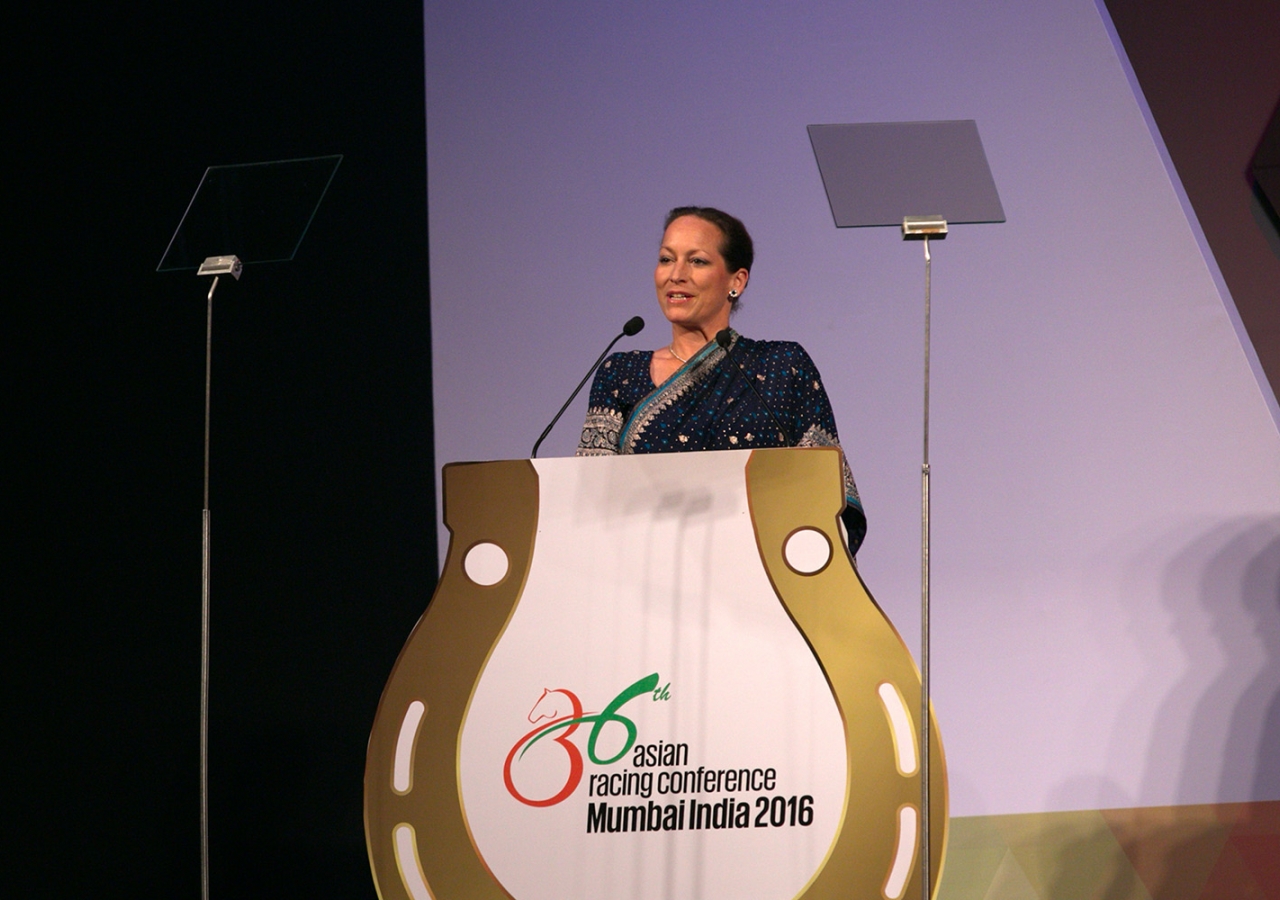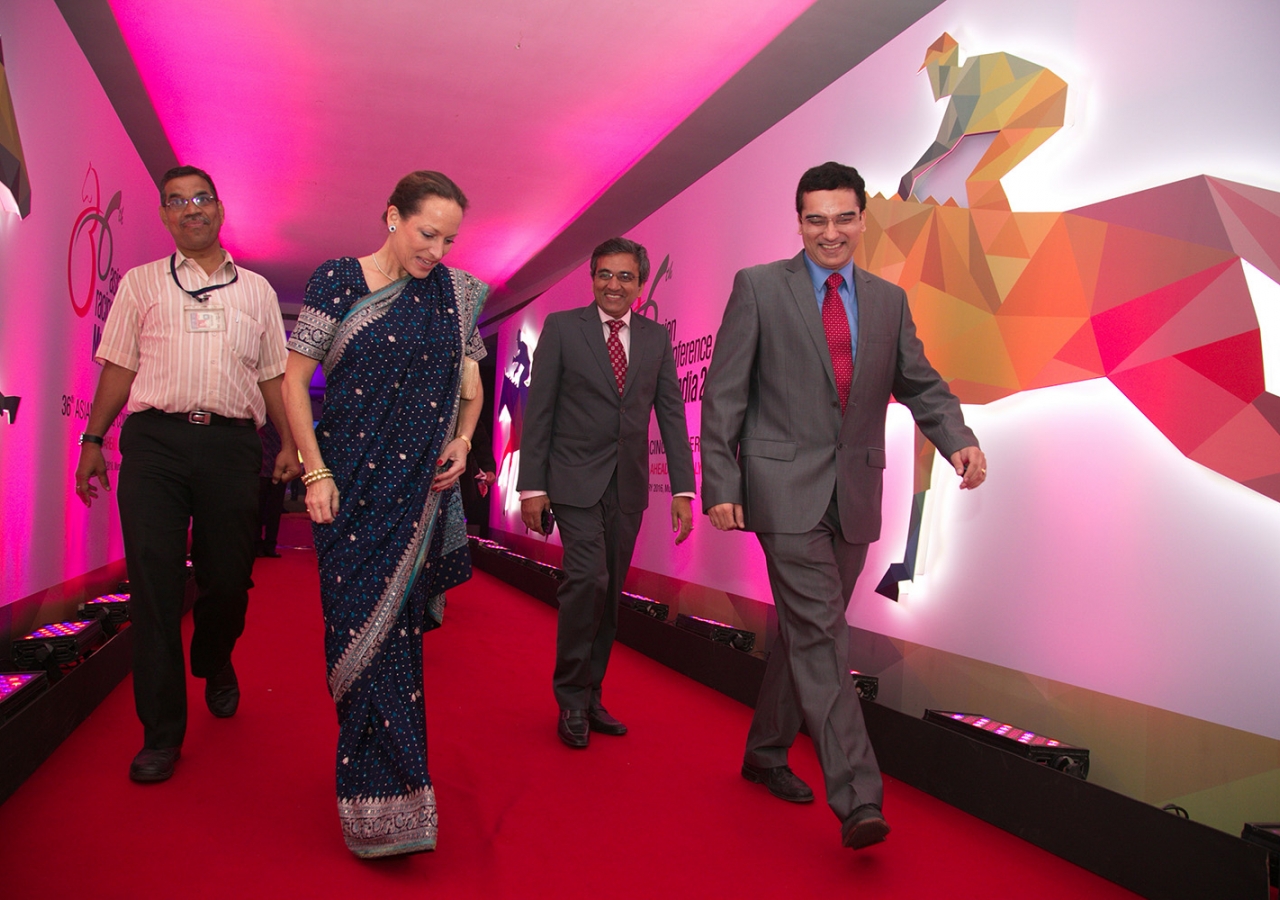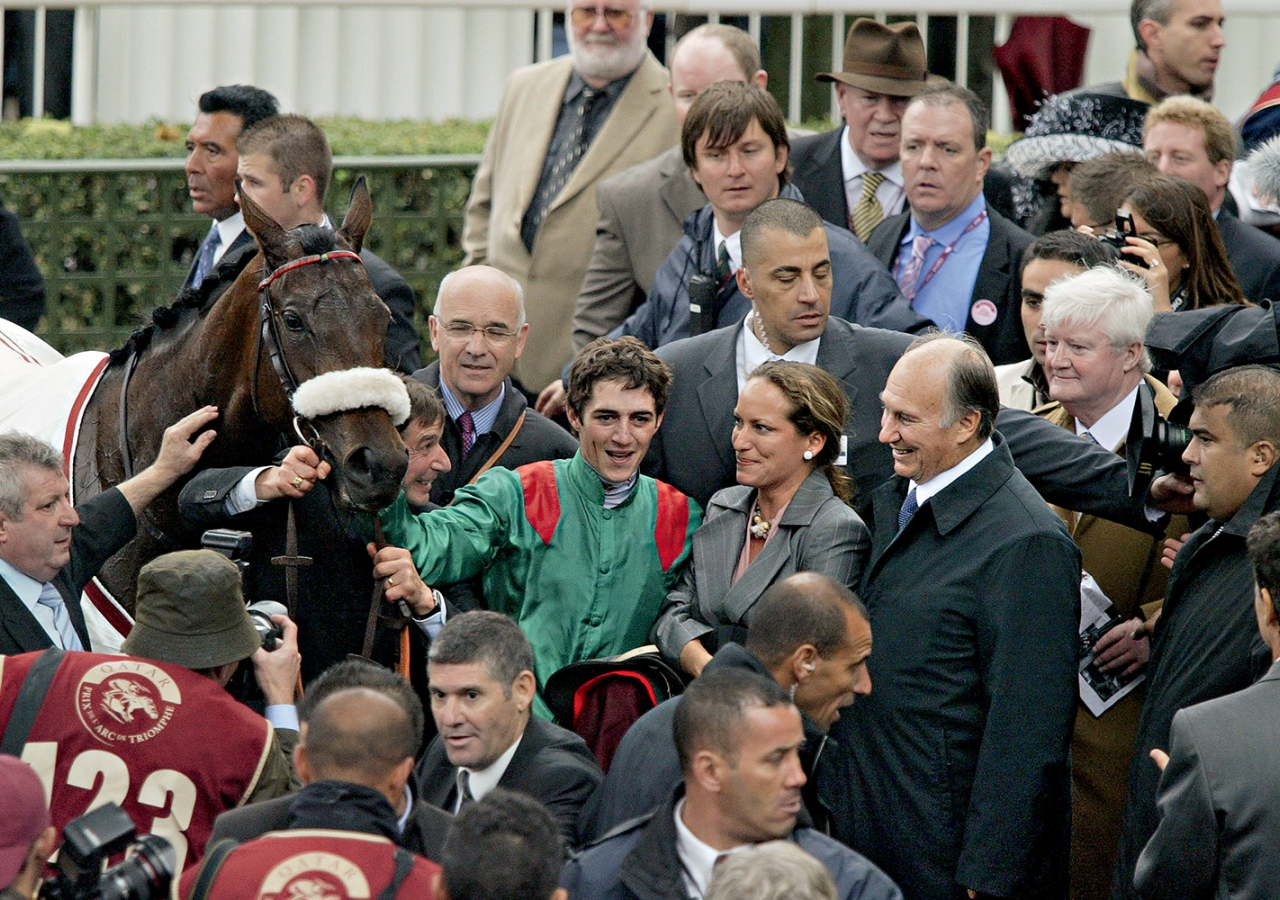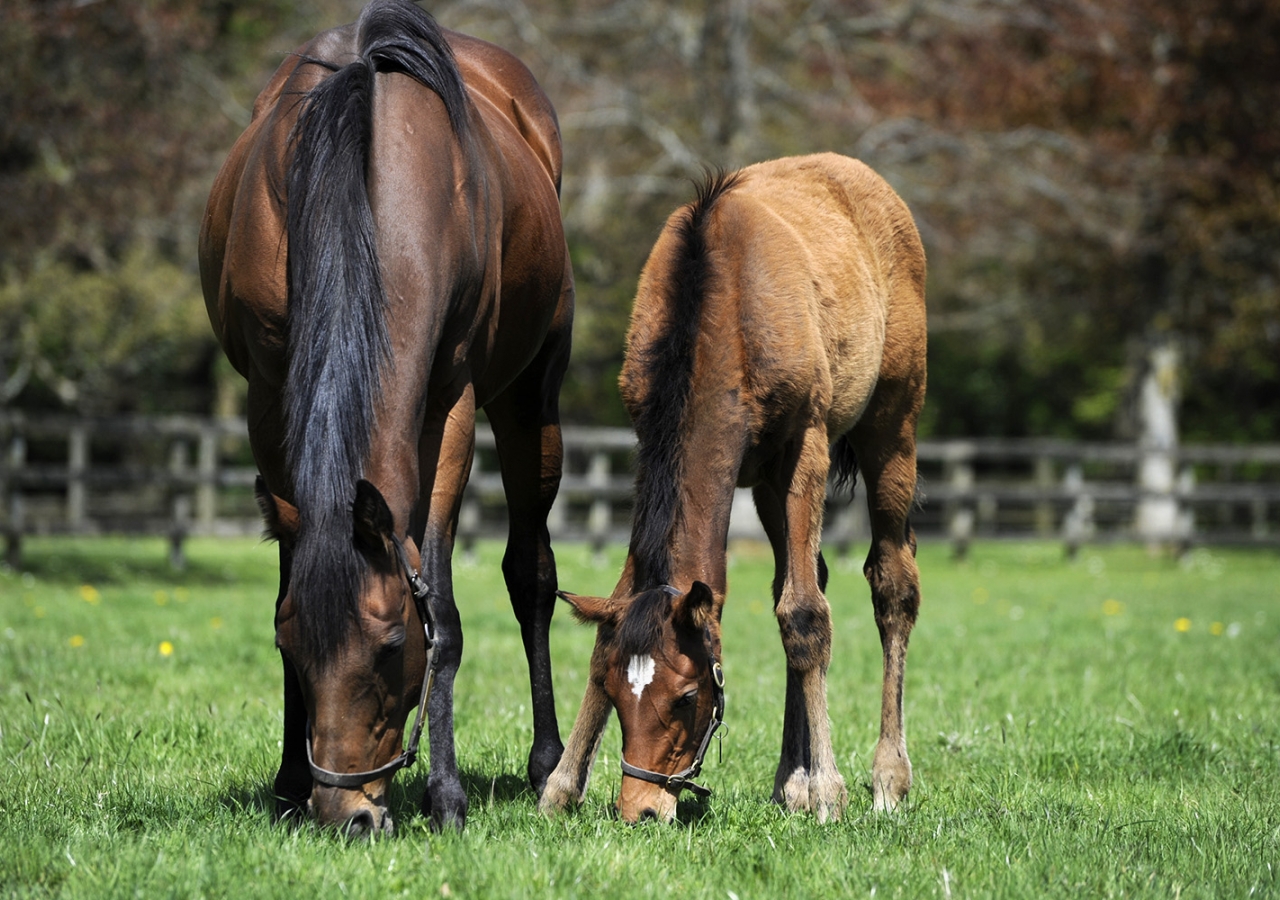“In the late 19th century, my great-great-great grandfather was racing horses all over undivided India,” she recounted. “He had brought his stock from Persia, where the family had been breeding horses for many generations.”
Aga Khan horses are no strangers to the winner’s circle today; nor were they back then. Notable among them is Shere Ali — winner of the 1869 Arab Derby — and equally valiant contemporaries such as Khusroo and Maharaj.
In the 20th century, Mawlana Sultan Mahomed Shah and Prince Aly Khan would carry this success to the most prominent races in France, India, Ireland, and the United Kingdom. “Included in those lots was Mumtaz Mahal, the ‘flying filly’, and her blood still runs in the veins of our families today,” Princess Zahra pointed out.
Mawlana Hazar Imam built upon this foundation, making the Aga Khan racing and breeding operation among the most successful in the world.
Princess Zahra was delivering the keynote address to the 36th Asia Racing Conference at the invitation of the Asian Racing Federation. The Federation is the region’s principal body for thoroughbred racing, promoting horse breeding and international racing across its 21 member countries.
For the Imam’s family, horse breeding is a tradition that goes back 250 years and maintains ties with Persian and Indian history, explained Princess Zahra. “Many of the families in our studbook have been with us since 1922, and they are old friends.”
However, “the ‘horse business’ was much more patient in the past,” noted Princess Zahra. “Today, breeders and owners expect rapid returns from their investment, but frankly, the breeding business cannot be rushed.”
She used the occasion to voice concern about the loss of genetic diversity in the thoroughbred breed, and worried about a horse market that pursues trendy bloodlines and favours unproven stallions.
“You will often see good Aga Khan mares visiting unfashionable and affordable stallions,” she said. However, the breeding industry seems to be galloping in the opposite direction. “More and more often, it is now driven by vogue.”
This could be dangerous for the future of the thoroughbred horse. If breeders continue to limit themselves to chasing only a few choice pedigrees, experience suggests that the entire race of these animals will become more fragile and eventually decline.
Although horse racing and breeding suffer the popular perception of being frivolous activities, they are in fact significant contributors to the rural economy, “employing millions of people around the world in areas of shrinking agricultural production.” While the modern world — dominated by technology and industrialisation — may have marginalised the horse, the long and impressive relationship between mankind and this animal cannot be ignored.
Quoting Mawlana Hazar Imam from an interview he gave in 2010, Princess Zahra said: “You can look at the horse in human life — in agriculture, in war, or as a vehicle for exploration — for hundreds of years. When you think about it, the horse is one of the most extraordinary phenomena we have.”
Princess Zahra recalled the vast contributions that Aga Khan bloodlines have made in India and the wider region — not only through the direct breeding and racing activities of Mawlana Hassan Ali Shah, Mawlana Ali Shah and Mawlana Sultan Mahomed Shah in India, but also in the mares descended from Aga Khan families that continue to produce winners in India, as well as through chart-leading Aga Khan-bred stallions.
“We are proud and honoured to be associated with racing and breeding in India and around the world after so many years and so many generations,” she concluded, “and we intend to continue this time-honoured tradition.”











